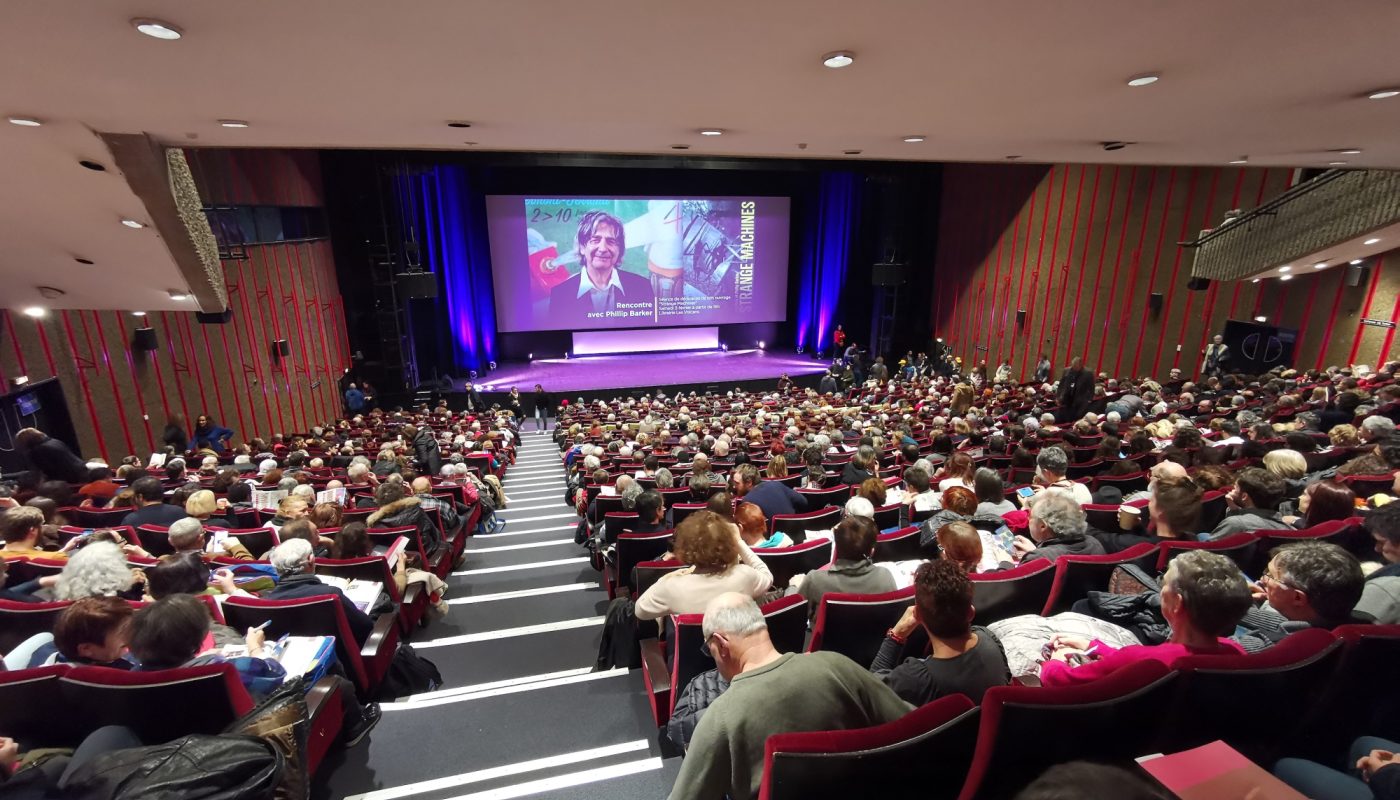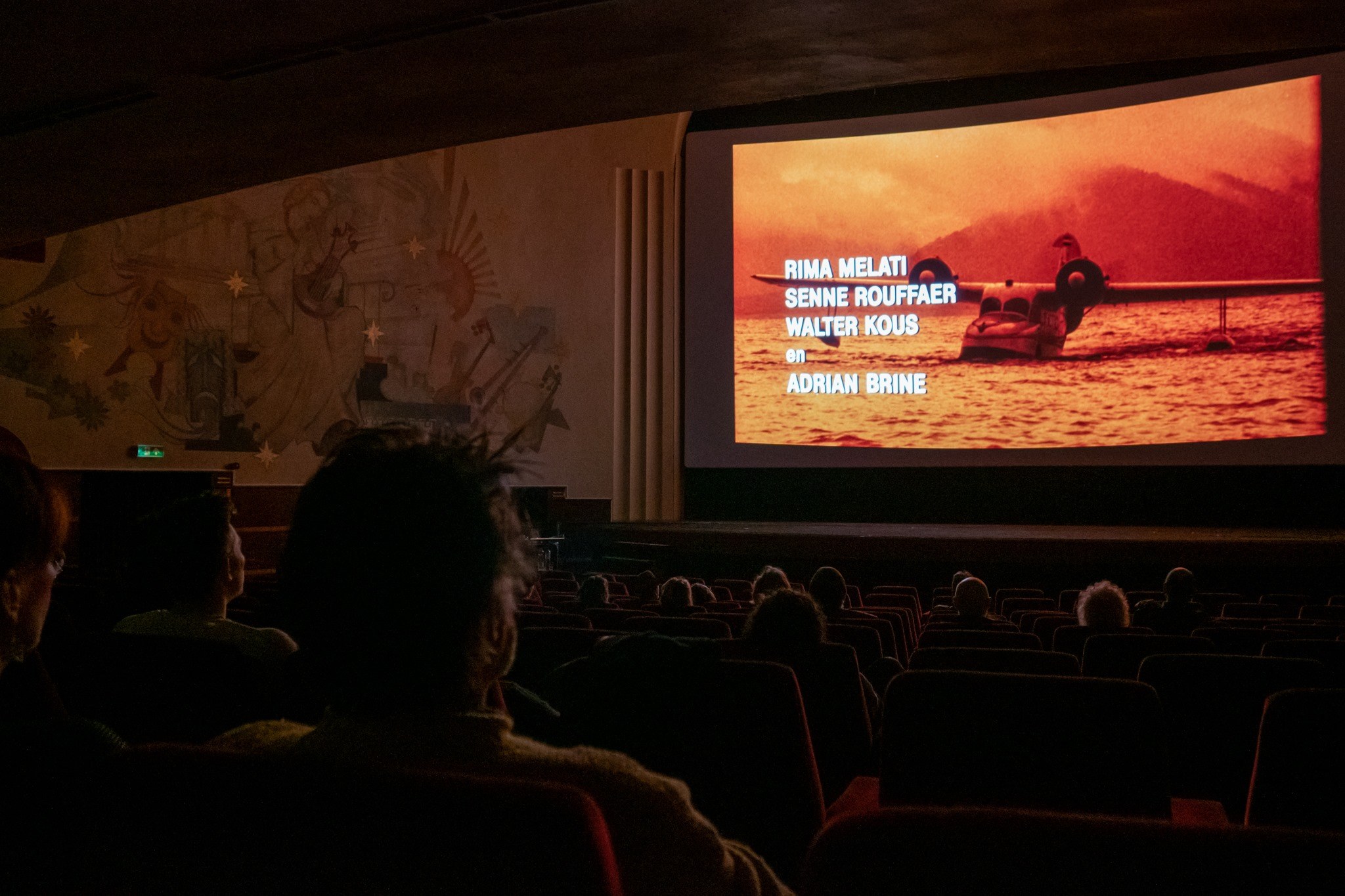

How do film festival programmers work?
Head programmer and decision makers of Euregion Film Festival 2020 tell you how they work.
Geplaatst op 8 april 2020It's one of the most frequently asked questions: how do I get my film into film festivals? Unfortunately, there is no clear answer. Every festival works differently, and every festivals has its own specific taste and way of programming. In this article we asked our head of programming Alexander Gusev and some of our decision makers on how they looked at the films that were submitted to Euregion Film Festival 2020.
Decision making
For the 2020 edition, the Euregion Film Festival received over 300 submissions. A team of three people watched all the submissions and made a top 20 list. From these 20 films, a maximum of 10 films could be chosen to be in the official competition. Head of programming for the festival is Alexander Gusev. Alexander is a Ukrainian film critic and journalist who was in the selection committee or jury of several international film festivals. Together with three decision makers he made a final decision on the 9 films that competed for the several awards. This years decision makers were Flemish filmmaker Kato de Boeck, Dutch film projectionist Pascal Essers and German film journalist Günter Jekubzik. To get an insight in how they work, we asked them some questions.
How do you choose the best films, what are criteria for you?
Kato: "When I start watching a film, I want to slide in the story and forget about the fact that I’m watching a film. That’s really the only criteria for me. The best way to do that as a maker, is to create an authentic atmosphere and world your audience doesn’t know yet. If I’ve seen a film and have the feeling that I learnt something new or was confronted with a certain reality that makes me re-think my own, then I feel the film must be selected in the program. That way, I want to be open for every genre and every point of view, despite my own taste in film."
Pascal: "I don't really have a list of criteria. I just want the film to grasp me."
Alexander: "As a programmer, I always hope (fortunately, there was no problem with this year’s selection) to find works not just the best among the submitted but those that correspond to universal advantages. I most appreciate the movies, whose authors respond to the challenges of our time, convey the sound and the fury of the era and at the same time show expressive characters.
Which films from the selection did you find the best?
Kato: "I liked the storytelling in Weightlifer a lot. It showed an unknown world of a very troubled sporter in a way I’ve never seen before. By showing very little, the maker was actually telling a lot. No useless dramatic events or scenes, but a believable reality that I want to know more about. Both Dafi Metti and Unlike Today gave me an insight in the world of people we see a lot in our daily reality, but never realize where or how they go to sleep at night. Dafi Metti was touching, eye-opening and shot in a very carefully way. In Unlike Today I found beauty in the realistic way ‘love’ and ‘life’ was shown, in its silence, grumpiness and habits."
Pascal: "I really liked Downward Facing Dogs, it is a very effective and funny film. Also Zwart convinced me, at one point the audiovisual style of the movie really takes over the story. But if I have to choose a favourite, I think it will as well be Weightlifter. I always have a soft spot for characters who don't talk that much and the film consists of beautiful shots. The director is not afraid to take time to show something."
Alexander: "I will let the jury decide their favourite. Maybe it is nice to name a film which didn't make it into the final selection. It often happens that a movie that is not selected for some reasons causes a particularly warm feeling. I would like to mention The Oceans Are the Real Continents by Tommaso Santambrogio, a sad and beautiful story about parting and love which is still not capable of connecting people by itself, filling their existence."
What makes a perfect film for you?
Kato: "Although I think a perfect film doesn’t exist, I like it to be authentic, intelligent and surprisingly in its storytelling and character development. All of this set in an arena that helps to tell the story or reveal the personality of its main characters and makes their conflict or obstacles believable. I don’t care that much about story plots. When I fall in love with a movie it’s mostly because a character is shown layered and their choices keep surprising you. Furthermore, for me it’s always a plus to see conflicts or people that are often un-represented in media or that don’t belong to a so called ‘norm’."
Pascal: "For me, a perfect film makes me forget time and space and grasps me completely. Personally, this is a consequence of the rhythm and audiovisual style of the film, rather than the story. Sound and images are really important to me."
Alexander: "It seems to me that in an ideal film, paradoxically, there should be something wrong, certain roughness, tartness, some unsteadiness, giving it the breath of a genuine life."
Can you tell more about the themes of Euregion and how they are reflected in the program?
Alexander: "The themes appeared after making a pre-selection. So we didn't look for films which fit the themes Dare & Endure, but noticed in the end that this was a way to categorize the favourites. The program Dare is dedicated to people who go beyond the usual, comfortable frame of their everyday life. Downward Facing Dogs by Karsten de Vreugd in the genre coordinates of the black comedy shows the depressed state of modern man and carries out his secret desires. Weightlifter by Dmytro Sukholytkyy-Sobchuk tells about hero whose equanimity bordering on apathy is a kind of cover for the tension that has seized him, which is suddenly found in outbursts of aggression, and the desire to take weight is not only mania, but also therapy, a way to cope with traumatic memories and neuroses. Something About Alex by Reinout Hellenthal an opportunity to defeat the demons of society and personality is unconditional love and acceptance between relatives. In Dafa Metti by Tal Amiran the luminous Eiffel towers combined with migrant tales of distant families, police harassment and comrades who found death in the Seine."
"The program Endure made up of films about people who managed (or at least try) to maintain their dignity in everyday tribulations.Waiting Room by Laura Huygen tells of a purgatory for refugees, month after month, year after year wandering in circles of boredom and despair. Unlike Today by Astrid Menzel is a depiction of difficulties that we encounter when we try to accept the physical extinction, our own or our loved ones. Zwart by Tommie Geraedts is a courageous mix of comedy about adultery, the drama of family life and the cyber thriller. By the River by Dan Braga Ulvestad speaks of both exotic Indian ideas and the universal nature of man, with disclosure social problems, thoughts about death and attempts to accept with the departure of loved ones. Fifteen-Two by John Summerson is a reproduction of the relationship of a married couple who has carried reciprocity through life."
"To my taste, the films of the Euregion Film Festival this time in particular expressively speaks about the inevitability of human hopes and fears, about the severity of the trials prepared for each of the living, and about the love of our neighbors and our own stamina, which allow us to withstand these tests."
